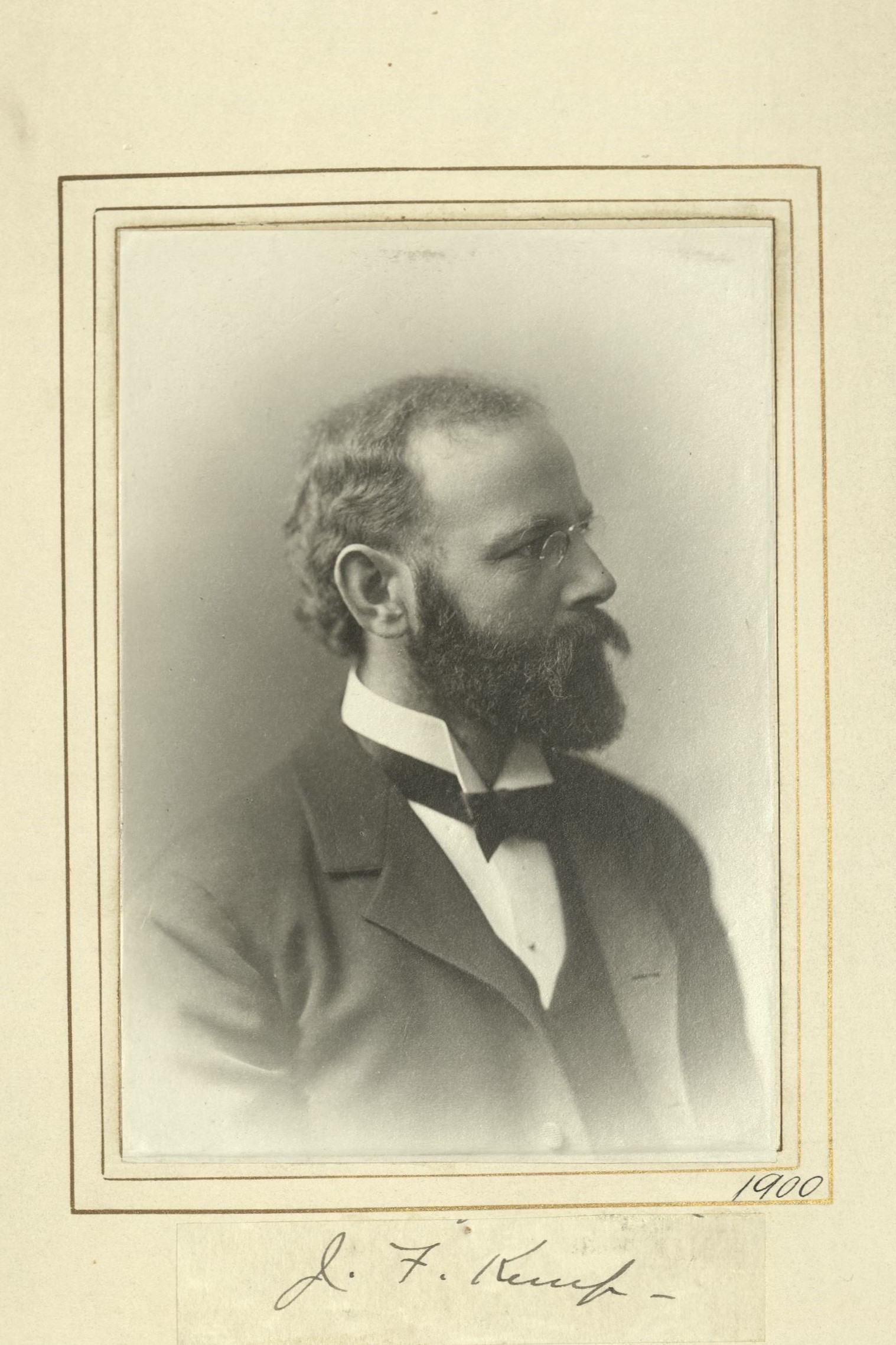Professor of Geology
Centurion, 1900–1926
Born 14 August 1859 in New York (Manhattan), New York
Died 17 November 1926 in Kensington, New York
Buried New Fernwood Cemetery , South Kingstown, Rhode Island
, South Kingstown, Rhode Island
Proposed by Charles A. Macy Jr. and George F. Kunz
Elected 2 June 1900 at age forty
Proposer of:
Century Memorial
To those half-dozen fellow-Centurions who remember from college days the “Jimmy Kemp of ’81,” with his slender frame, curly hair and dreamy eye, there was little bond of identity with the burly figure or the decisive utterance or the prematurely gray and shaggy beard that marked the master-geologist of later days, the “Uncle Jimmy” to the long line of trained engineers and scientists who went out from his classes at the School of Mines. James Furman Kemp, though he did not belong to that group which at college class reunions console us for the flight of time by looking almost as young as on Commencement Day, was always, even in school days, grappling with the secrets of geology. His professional judgment was in high demand when mining or engineering enterprises met those disconcerting obstacles which the earth puts below the surface. In his pupils he inspired contagious enthusiasm. Mutual respect and affection were outspoken, for instance, between Kemp and that notable geological engineer [Gelasio Caetani] who discarded the mining curriculum of his foreign home, left the associations of old Italian nobility, first to study in Kemp’s classes at New York and then to hang out his shingle at the Nevada cross-roads, blew up the Austrian mountain salient when the Italian troops were blocked in 1916, entered Rome in 1922 with Mussolini and returned to the United States a year later as Italy’s ambassador. Widely separated as they were in the ordinary walks of life, the pupil ascribed to the teacher most of what he had himself achieved, and the teacher was more proud of the pupil’s practical mastery of science than of his political distinction.
Alexander Dana Noyes
1927 Century Association Yearbook

